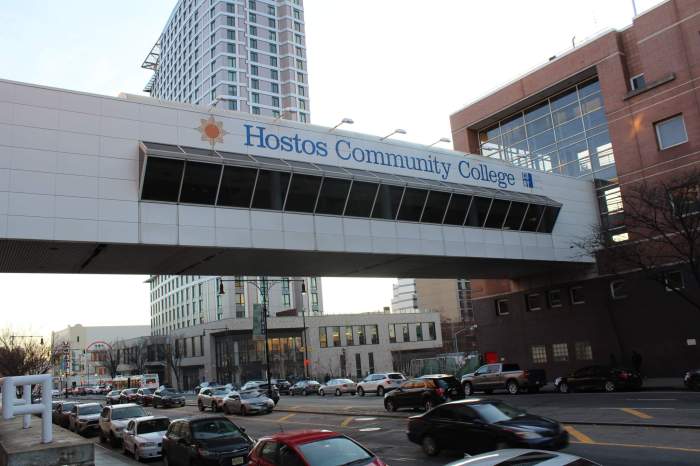Bimbo Bakeries dodges bullet over straight man’s civil rights, wrongful dismissal charges
A federal magistrate judge in Portland, Oregon has ruled that a straight, male employee of Bimbo Bakeries—yes that truly is the name of the company—was not subjected to an unlawful “hostile environment” when an openly-gay co-worker frequently spoke about his sexual exploits.
Magistrate Judge John Jelderks granted the employer’s motion for summary judgment, rejecting sex discrimination claims filed by Don Hubbard. He sued after quitting his job, asserting a state court claim for wrongful termination due to a hostile environment, as well as state and federal statutory sex discrimination claims.
Hubbard’s case focused on two former co-workers, Rick Felty and James Marshall. Hubbard claimed that Felty was overly familiar, “came on” to him, and subjected him to unwanted attentions of a sexual nature. But Felty is avowedly straight, and there was significant antagonism between the two men because of Hubbard’s criticisms of the company’s drivers, of whom Felty was one.
Marshall, a production supervisor, is openly gay, and according to Hubbard, he would not shut up about it, frequently talking about his sexual exploits, including fist-fucking and getting blowjobs in gay bars. Hubbard claimed that Felty and Marshall’s conduct was so unsettling that they made the workplace intolerable for him, so he had to quit.
Jelderks found it hard to accept that Felty was actually making sexual advances to Hubbard in light of the mutual antagonism of the two men and Felty’s assertion that he was not gay. Hubbard claimed that Felty was overly friendly at times, making observations about his appearance and insinuations about possible sexual activities.
“Though it is not unheard of for persons to ‘come on’ to or be ‘overly friendly’ to people they do not like, and for people to want to have intimate relationships with people they strongly dislike, it is at least unusual,” the magistrate wrote. “Given that plaintiff and Felty clearly disliked each other, it is difficult to believe that Felty truly wished to have an intimate relationship with plaintiff, and sought to entice him into such a relationship.”
More importantly, Jelderks found, even if the assertions Hubbard made could be proven at trial, they were insufficiently severe or pervasive to meet the high bar set by the Supreme Court for hostile environment sexual harassment claims.
“There is no evidence that Felty or Marshall ever touched, threatened to touch, or attempted to touch plaintiff, and there is no evidence that Marshall in any way suggested or implied that he sought a physical relationship or sexual contact with plaintiff,” Jelderks wrote. “There is no evidence that the conduct of either Felty or Marshall was physically threatening or truly humiliating.”
As to Marshall’s unwanted workplace statements about his sexual preferences and experiences, Jelderks was unwilling to convert them into actionable sexual harassment.
“Marshall’s conduct may have been subjectively offensive to plaintiff and would be considered objectively offensive to many reasonable people,” he wrote. “However, this conduct, considered along with the conduct of Felty…. was not sufficiently severe or pervasive to alter the terms and conditions of plaintiff’s employment and create a hostile work environment.”
On the wrongful termination claim, Jelderks wrote, “Certainly, there is evidence that Marshall made a number of comments about homosexual conduct, and that some of Felty’s conduct made plaintiff uncomfortable.” However, he found, even if all of Hubbard’s claims were taken at face value—which must be done when considering a defendant’s motion to dismiss them—“this evidence does not describe sexual harassment that was sufficiently severe or pervasive to support” the claim he was forced into quitting.
Similarly, Jelderks rejected Hubbard’s claim that the company retaliated against him for his complaints, finding no evidence that Bimbo took any action calculated to provoke him into resigning. In fact, he was promoted and transferred to a setting where he would have no contact with Marshall and much less contact with Felty after he voiced his discontents to management.
The case shows one strand of hostile-environment litigation, in which straight-identified employees claim that they are suffering workplace hostility because an openly-gay co-worker is excessively friendly or familiar, or just won’t shut up about their sex life, in a manner offensive to others. But, as Justice Antonin Scalia pointed out in his opinion for the U.S. Supreme Court in the famous same-sex harassment case of Oncale v. Sundowner Offshore Services—which found that such claims can be upheld under the right circumstances—the civil rights laws do not create a workplace civility code.
It’s not enough that an employee was offended, or found the frequent sex talk to be oppressive. The issue is whether the environment was so hostile and severe as to make it difficult or impossible for the employee to do his job, and the courts are unwilling to make a “federal case” over the fact that straight employees are offended by “gay talk” in the workplace.
gaycitynews.com

































